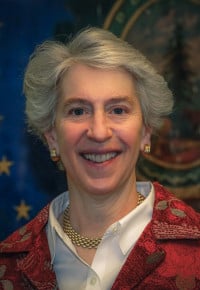
By Senator Alison Clarkson, Windsor-5
Vermont’s Legislature is in its final stages of our 2017-18 Biennium. If bills are to make it into law they need to be acted on by both the House and the Senate by the “fall of the gavel,” which is anticipated to be in the next two weeks. Needless to say, this puts a good deal of pressure on bills which are still in the pipeline.
Where there is disagreement between the House and the Senate, conference committees are set up to negotiate the differences. It is rare that a conference committee doesn’t resolve its differences. Legislative bills, which have been introduced but not passed, die at the end of this session. Of course, they can be re-introduced next year. In some cases this means more work is done on that proposal, resulting in a possible path to passage.
During this period of the last two weeks of a Session, we pass a lot of bills which you don’t necessarily read about but which matter to Vermonters. We’ve passed charter changes to towns and cities that need Legislative approval to enact changes, and measures to protect our bee pollinators from toxins in pesticides. The Senate agreed with the House to form a Task Force to explore the challenges state government faces with the growth of Artificial Intelligence – from the collection and sale of big data to self-driving cars. And, we have passed a bill, H.624 designed to further protect our state-wide voter checklist – limiting who is able to access its information.
Voting security
Our Secretary of State, Jim Condos, reassured our Senate Government Operations Committee about the integrity of our voting system in Vermont. Yes, there are threats, but Condos says they are addressed daily. President Obama had identified elections as a critical infrastructure to further invest in – and his efforts, coupled with the money Vermont has received from the Help America Vote Act, have enabled Vermont’s efforts to actively circumvent attacks on our system.
In 2013 Vermont had a complete cyber risk assessment done on our system. And, as a result, partnering with Homeland Security, we’ve put measures into place (firewalls, etc.) to protect our voting system from cyberattacks and other threats. When the Russians attacked our USA election’s system, Vermont was not one of the 21 states, which had intrusions.
Vermont’s scanner system is very safe. It is not tied into the internet and is protected by multiple checks and balances. Every town in Vermont with over 1,000 voters is required to have a scanner machine; in fact, 80 percent of Vermonters vote using a scanner. This system, coupled with our by-hand voting (with recounts done by hand) – is considered safe and secure. Good news as we head into the 2018 election cycle.
Sen. Clarkson can be reached by email at: [email protected] or by phone at the Statehouse (Tues.-Fri.) 828-2228 or at home (Sat-Mon) 457-4627.




